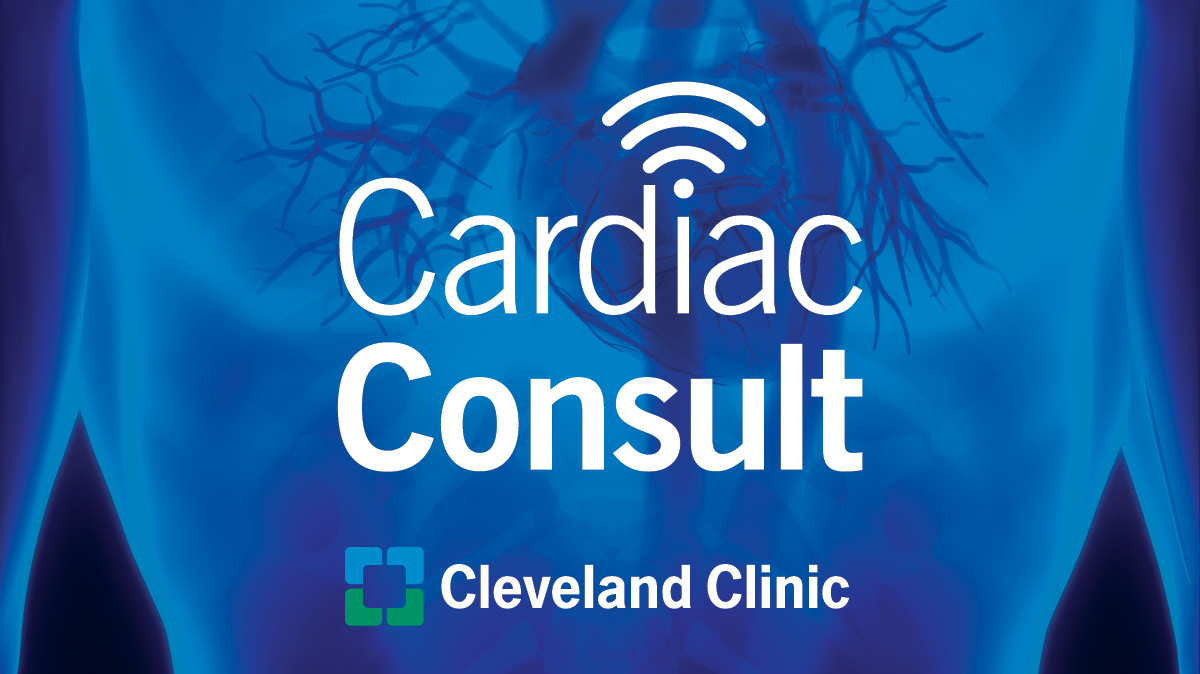APOLLO Trial Finds Experimental ‘Gene Silencing’ Therapy Reduces Lipoprotein(a) By Up To 98%

Presented at the American College of Cardiology as a Late-Breaking Clinical Trial, the Cleveland Clinic-led APOLLO trial explores siRNA therapy as a treatment option to help prevent premature heart disease in people with high levels of Lp(a). This condition is estimated to affect 64 million people in the United States and 1.4 billion people worldwide. It is estimated that nearly 20 to 25% of the world's population has elevated Lp(a). Dr. Steven Nissen, M.D., Chief Academic Officer of the Heart, Vascular and Thoracic Institute at Cleveland Clinic explains the purpose, patient selection, and findings of APOLLO.
Learn more about Dr. Steven Nissen
See the ConsultQD article here
See the Cleveland Clinic News Release here
Subscribe: Apple Podcasts | Buzzsprout | Spotify
APOLLO Trial Finds Experimental ‘Gene Silencing’ Therapy Reduces Lipoprotein(a) By Up To 98%
Podcast Transcript
Announcer:
Welcome to Cleveland Clinic Cardiac Consult brought to you by The Sydell and Arnold Miller Family Heart, Vascular and Thoracic Institute at Cleveland Clinic.
Steven Nissen, MD:
I'm Dr. Steve Nissen. And I'd like to talk to you about the APOLLO trial, which is presented at the American College of Cardiology meeting and simultaneously published in the Journal of the American Medical Association. The purpose of APOLLO was to evaluate in an early phase trial, this is a phase one trial, the safety and the efficacy of an approach to lowering lipoprotein(a). Lipoprotein(a) is a fairly common disorder, about 20% of the global population has elevated levels, and it's strongly associated with atherosclerotic vascular disease and aortic stenosis.
Steven Nissen, MD:
And it is heretofore been essentially an untreatable disorder. So what APOLLO studied was a drug known as SLN 360. Still has a numerical name, although it's going to probably have another name relatively soon. And this drug is designed to lower LP(a) by a very interesting mechanism. There is a gene that makes apolipoprotein A. Apolipoprotein A is an essential component of lipoprotein(a) and it's actually rate-limiting, it's a determinant of what the blood levels are going to look like. So, if you want lower levels, you've got to essentially turn off the gene.
Steven Nissen, MD:
And the way this therapy works, it's known as a short interfering RNA, it's a small piece of RNA that is given by subcutaneous injection. There's a sugar attached to it called GalNAc, which helps to transport it into the liver, which is where apolipoprotein A is made. And this short interfering RNA combines with and degrades the messenger RNA, which codes for the Apolipoprotein A protein. If you don't make Apolipoprotein A, you can't make LP(a).
Steven Nissen, MD:
The study was small. It was only 32 participants, eight got a placebo and four groups got different doses: 30 milligrams, 100 milligrams, 300 milligrams or 600 milligrams. And they were then followed for 150 days, that's five months. Fairly frequent visits, where their lipoprotein(a) blood levels were actually measured in concentration or nanomoles per liter.
Steven Nissen, MD:
All of these participants had elevated levels, above 115 nmol/L. And that's a level that everybody is quite comfortable with is associated with increased risk. The results were very striking. First, there were no major safety issues with the therapy. The efficacy, however, was quite extraordinary. At the top dose, there was a 98% reduction in lipoprotein(a). And at the next highest dose of 300 milligrams, there was a 96% reduction. Now, these reductions occurred at the nadir between 30 and 60 days after administration, but they were persistent. And if you go out to 150 days, the top dose still had an 81% reduction. And the next highest dose, a 71% reduction.
Steven Nissen, MD:
The reason that this happens is that the siRNA, after it degrades messenger RNA, it actually is recycling itself. And it goes on and it degrades additional messenger RNA that's being produced. And so at a very long duration of action, many months, this is only a single dose. So this is a therapy where a single subcutaneous dose can last a long time. There were a few adverse effects. Some moderate grade injection site reactions. Typical of what happens when you inject an RNA therapeutic. So this drug is now one of three drugs that are in development. One of which is actually in phase three which works by a somewhat different mechanism.
Steven Nissen, MD:
We are very encouraged that after decades of attempting to find therapies that could lower lipoprotein(a), we're now on the verge of several therapies making it to market so that they can be offered to patients. These are patients that often have myocardial infarction or stroke. Sometimes even in their 40s or 30s. They have premature aortic stenosis, and we cannot treat them now. Statins don't work. Lifestyle alteration doesn't work. But if you can prevent the production of the LP(a) gene from making this abnormal particle, you can lower levels dramatically.
Steven Nissen, MD:
What we've not yet shown is whether lowering levels even by this 96 to 98% reduction, does that lowering actually reduce the risk of events? That research is continuing. As I mentioned, there's a study in phase three and other studies moving along. And we'll be moving this therapy along as quickly as we can.
Announcer:
Thank you for listening. We hope you enjoyed the podcast. We welcome your comments and feedback. Please contact us at heart@ccf.org. Like what you heard? Subscribe wherever you get your podcasts or listen at clevelandclinic.org/cardiacconsultpodcast.

Cardiac Consult
A Cleveland Clinic podcast exploring heart, vascular and thoracic topics of interest to healthcare providers: medical and surgical treatments, diagnostic testing, medical conditions, and research, technology and practice issues.



